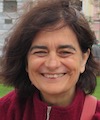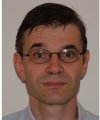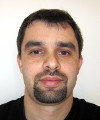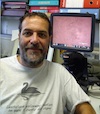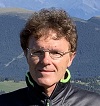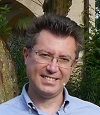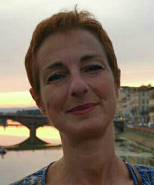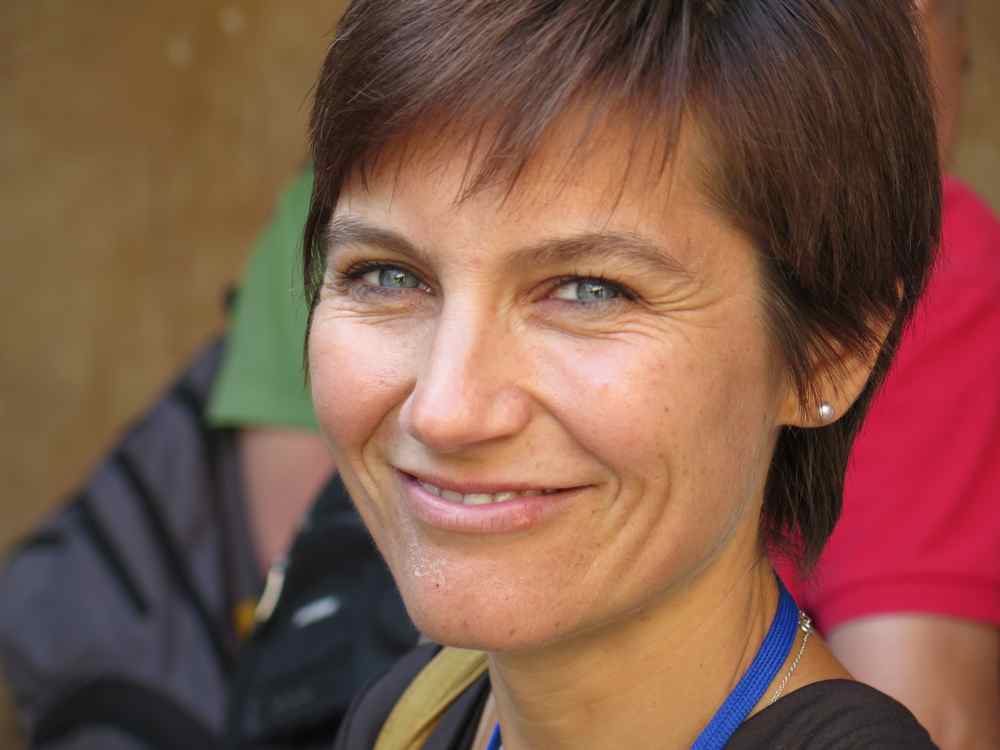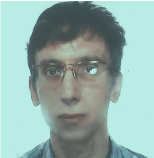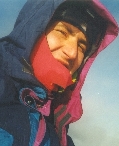Studying at the University of Verona
Here you can find information on the organisational aspects of the Programme, lecture timetables, learning activities and useful contact details for your time at the University, from enrolment to graduation.
Academic calendar
The academic calendar shows the deadlines and scheduled events that are relevant to students, teaching and technical-administrative staff of the University. Public holidays and University closures are also indicated. The academic year normally begins on 1 October each year and ends on 30 September of the following year.
Course calendar
The Academic Calendar sets out the degree programme lecture and exam timetables, as well as the relevant university closure dates..
| Period | From | To |
|---|---|---|
| I semestre | Oct 1, 2020 | Jan 29, 2021 |
| II semestre | Mar 1, 2021 | Jun 11, 2021 |
| Session | From | To |
|---|---|---|
| Sessione invernale d'esame | Feb 1, 2021 | Feb 26, 2021 |
| Sessione estiva d'esame | Jun 14, 2021 | Jul 30, 2021 |
| Sessione autunnale d'esame | Sep 1, 2021 | Sep 30, 2021 |
| Session | From | To |
|---|---|---|
| Sessione di laurea estiva | Jul 22, 2021 | Jul 22, 2021 |
| Sessione di laurea autunnale | Oct 14, 2021 | Oct 14, 2021 |
| Sessione di laurea autunnale - Dicembre | Dec 9, 2021 | Dec 9, 2021 |
| Sessione invernale di laurea | Mar 16, 2022 | Mar 16, 2022 |
| Period | From | To |
|---|---|---|
| Festa dell'Immacolata | Dec 8, 2020 | Dec 8, 2020 |
| Vacanze Natalizie | Dec 24, 2020 | Jan 3, 2021 |
| Vacanze di Pasqua | Apr 2, 2021 | Apr 6, 2021 |
| Festa del Santo Patrono | May 21, 2021 | May 21, 2021 |
| Festa della Repubblica | Jun 2, 2021 | Jun 2, 2021 |
| Vacanze Estive | Aug 9, 2021 | Aug 15, 2021 |
Exam calendar
Exam dates and rounds are managed by the relevant Science and Engineering Teaching and Student Services Unit.
To view all the exam sessions available, please use the Exam dashboard on ESSE3.
If you forgot your login details or have problems logging in, please contact the relevant IT HelpDesk, or check the login details recovery web page.
Should you have any doubts or questions, please check the Enrollment FAQs
Academic staff
 elena.gaburro@univr.it
elena.gaburro@univr.it
 cecilia.mancini@univr.it
cecilia.mancini@univr.it
 alessia.mandini@univr.it
alessia.mandini@univr.it
Study Plan
The Study Plan includes all modules, teaching and learning activities that each student will need to undertake during their time at the University.
Please select your Study Plan based on your enrollment year.
1° Year
| Modules | Credits | TAF | SSD |
|---|
2° Year activated in the A.Y. 2021/2022
| Modules | Credits | TAF | SSD |
|---|
3° Year activated in the A.Y. 2022/2023
| Modules | Credits | TAF | SSD |
|---|
| Modules | Credits | TAF | SSD |
|---|
| Modules | Credits | TAF | SSD |
|---|
| Modules | Credits | TAF | SSD |
|---|
| Modules | Credits | TAF | SSD |
|---|
Legend | Type of training activity (TTA)
TAF (Type of Educational Activity) All courses and activities are classified into different types of educational activities, indicated by a letter.
Type D and Type F activities
Le attività formative in ambito D o F comprendono gli insegnamenti impartiti presso l'Università di Verona o periodi di stage/tirocinio professionale.
Nella scelta delle attività di tipo D, gli studenti dovranno tener presente che in sede di approvazione si terrà conto della coerenza delle loro scelte con il progetto formativo del loro piano di studio e dell'adeguatezza delle motivazioni eventualmente fornite.
| years | Modules | TAF | Teacher | |
|---|---|---|---|---|
| 1° 2° | History and Didactics of Geology | D |
Guido Gonzato
(Coordinator)
|
|
| 1° 2° 3° | Algorithms | D |
Roberto Segala
(Coordinator)
|
|
| 1° 2° 3° | Scientific knowledge and active learning strategies | F |
Francesca Monti
(Coordinator)
|
|
| 1° 2° 3° | Genetics | D |
Massimo Delledonne
(Coordinator)
|
|
| years | Modules | TAF | Teacher |
|---|---|---|---|
| 1° 2° 3° | Algorithms | D |
Roberto Segala
(Coordinator)
|
| 1° 2° 3° | Python programming language | D |
Vittoria Cozza
(Coordinator)
|
| 1° 2° 3° | Organization Studies | D |
Giuseppe Favretto
(Coordinator)
|
| years | Modules | TAF | Teacher | |
|---|---|---|---|---|
| 1° | Subject requirements: mathematics | D |
Rossana Capuani
|
|
| 1° 2° 3° | ECMI modelling week | F | Not yet assigned | |
| 1° 2° 3° | ESA Summer of code in space (SOCIS) | F | Not yet assigned | |
| 1° 2° 3° | Google summer of code (GSOC) | F | Not yet assigned | |
| 1° 2° 3° | Introduzione all'analisi non standard | F |
Sisto Baldo
|
|
| 1° 2° 3° | C Programming Language | D |
Pietro Sala
(Coordinator)
|
|
| 1° 2° 3° | LaTeX Language | D |
Enrico Gregorio
(Coordinator)
|
|
History and Didactics of Geology (2020/2021)
Teaching code
4S008848
Teacher
Coordinator
Credits
6
Also offered in courses:
- History and Didactics of Geology of the course Master's degree in Mathematics
Language
Italian
Scientific Disciplinary Sector (SSD)
GEO/04 - PHYSICAL GEOGRAPHY AND GEOMORPHOLOGY
Period
I semestre dal Oct 1, 2020 al Jan 29, 2021.
Learning outcomes
Learning Objectives
The course aims to provide a shared cultural foundation of the unifying concepts of Earth Sciences.
Knowledge
Concepts expounded in the course will allow students to:
- understand the history and evolution of planet Earth; the evolution of Earth processes and the underlying endogenous and exogenous dynamics; the formation of landforms and landscapes;
- provide the tools for the assessment of geological and geomorphological hazards; understand the scope of Earth Sciences in environmental science;
- understand the purpose of geological classifications; understand how fossils provide information about environment changes and the evolution of species in geologic time;
- identify the main rock types and their originating processes.
Abilities
- identification of the most common types of minerals and rocks, along with the originating geological processes;
- identification of the most common fossils, especially those that are found in the Veronese area;
- identification of the main geomorphological features of the territory;
- reading a geological and/or geomorphological map and extracting basic information.
Program
Course Syllabus
The entire course will be available online.
Adequate English proficiency is required, since the course will make use of teaching material in English. The course will focus on the following topics:
- scope and aims of Earth Sciences;
- elements of geophysics of solid Earth;
- geomorphology: general concepts; examples taken from the Italian and Veronese territory;
- mineralogy: origin and classification of minerals;
- petrography: origin and classification of rocks;
- sedimentology: origin and deposition of sediments; depositional environments;
- stratigraphy: general concepts; examples taken from the Veronese area;
- paleontology: general concepts; classification of the most common and most significant fossils;
- regional geology: geological framework of Italy in the Mediterranean context;
- karst and speleology;
- geological and geomorphological mapping using a GIS;
- geological risk assessment;
- climate and palaeoclimate.
Delivery Modes
Classroom and online lectures with slides (all sessons will be recorded) and outdoor lessons to be delivered at some localities in and around Verona. Outdoor lessons are required to put classroom lessons into practice; for instance, identification of rocks. Attendance of both classroom and outdoor lessons is highly recommended.
| Author | Title | Publishing house | Year | ISBN | Notes |
|---|---|---|---|---|---|
| Chris Johnson, Matthew D. Affolter, Paul Inkenbrandt, Cam Mosher | An Introduction to Geology | Salt Lake Community College | 2017 | ||
| Gruppo Mineralogico Paleontologico Euganeo | Approfondimenti di Geologia | https://www.gmpe.it/ | 2005 | Sezione "Approfondimenti" | |
| Steven Earle | Physical Geology (Edizione 2) | BCCampus | 2015 | ||
| Alfonso Bosellini | Storia geologica d'Italia. Gli ultimi 200 milioni di anni | Zanichelli | 2005 |
Examination Methods
Assessments Methods
Purpose of the examination is to assess if / how well the learning objectives have been met.
The examination will consist of a written test (open-ended questions) and of an oral test. Identification of rocks and fossil specimens will be part of the oral test.
Online assessment will be granted to all students who request it during the 2020/2021 course.
Career prospects
Module/Programme news
News for students
There you will find information, resources and services useful during your time at the University (Student’s exam record, your study plan on ESSE3, Distance Learning courses, university email account, office forms, administrative procedures, etc.). You can log into MyUnivr with your GIA login details: only in this way will you be able to receive notification of all the notices from your teachers and your secretariat via email and soon also via the Univr app.
Graduation
Documents
| Title | Info File |
|---|---|
|
|
pdf, it, 31 KB, 29/07/21 |
|
|
pdf, it, 31 KB, 29/07/21 |
|
|
pdf, it, 171 KB, 20/03/24 |
List of theses and work experience proposals
| theses proposals | Research area |
|---|---|
| Formule di rappresentazione per gradienti generalizzati | Mathematics - Analysis |
| Formule di rappresentazione per gradienti generalizzati | Mathematics - Mathematics |
| Proposte Tesi A. Gnoatto | Various topics |
| Mathematics Bachelor and Master thesis titles | Various topics |
| THESIS_1: Sensors and Actuators for Applications in Micro-Robotics and Robotic Surgery | Various topics |
| THESIS_2: Force Feedback and Haptics in the Da Vinci Robot: study, analysis, and future perspectives | Various topics |
| THESIS_3: Cable-Driven Systems in the Da Vinci Robotic Tools: study, analysis and optimization | Various topics |
| Stage | Research area |
|---|---|
| Internship proposals for students in mathematics | Various topics |
Attendance
As stated in the Teaching Regulations for the A.Y. 2022/2023, except for specific practical or lab activities, attendance is not mandatory. Regarding these activities, please see the web page of each module for information on the number of hours that must be attended on-site.
Career management
Student login and resources
Erasmus+ and other experiences abroad
Commissione tutor
La commissione ha il compito di guidare le studentesse e gli studenti durante l'intero percorso di studi, di orientarli nella scelta dei percorsi formativi, di renderli attivamente partecipi del processo formativo e di contribuire al superamento di eventuali difficoltà individuali.
E' composta dai proff. Sisto Baldo, Marco Caliari, Francesca Mantese, Giandomenico Orlandi e Nicola Sansonetto

 +39 045 802 7913
+39 045 802 7913
